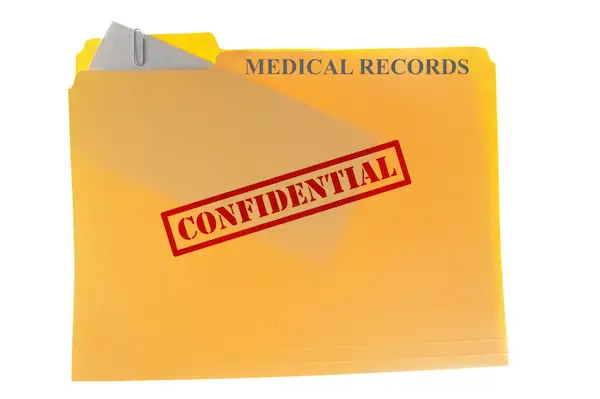How to Prevent Medical Identity Theft: 5 Tips
 Medical identity theft is when someone steals your personal information to obtain medical care, drugs or file false insurance claims in your name. It’s one of the fastest-growing crimes in America. Victims of medical identity theft spend a lot of valuable time and money restoring their medical records and credit rating. Take these five steps to help yourself avoid this fate:
Medical identity theft is when someone steals your personal information to obtain medical care, drugs or file false insurance claims in your name. It’s one of the fastest-growing crimes in America. Victims of medical identity theft spend a lot of valuable time and money restoring their medical records and credit rating. Take these five steps to help yourself avoid this fate:
Shred Medical Records
Thieves often look for medical bills and insurance statements in residential trash cans and recycling bins. Properly destroying documents with sensitive health information reduces the likelihood of becoming a medical identity victim. A residential pickup shredding service takes the hassle and guesswork out of using a shredding machine to destroy your paper records. Your documents are simply picked up at your door and securely transported to a shredding plant for destruction. You receive a Certificate of Destruction noting the time and date of shredding.
Keep an Eye on Your Mail
Mailboxes are popular targets for medical identity thieves. Try to collect your mail as soon as it’s delivered—never leave it overnight in your mailbox. If you can’t pick up your delivered mail each day, invest in a post office box. Also, always drop bills and other sensitive correspondence in a U.S. Postal Service mailbox so they can’t be stolen from a private mailbox.
Destroy Your Digital Data
As with your paper records, any old and unwanted digital devices should be destroyed. Sensitive data can still be extracted from discs and hard drives after they’re deleted and reformatted. In contrast, a media and hard drive shredding service will securely destroy your digital devices. A specialized shredder grinds them into small particles, making it impossible for a thief to steal your personal and medical data.
Don’t Volunteer Information over the Phone
Phone scams and medical identity theft often go hand in hand. Be wary if you receive an unsolicited phone call from your health insurance provider or another seemingly-official organization. If an organization needs to contact you about your medical history or health insurance information, they will do so by mail.
Scrutinize Your Medical Bills
Always check your medical bills and insurance statements for unauthorized charges and claims. After a received doctor visit or medical treatment, your health insurance provider should send an Explanation of Benefits (EOB). Read it carefully, and if you find discrepancies, contact the insurance company right away. Medical identity theft should also be reported directly to the Department of Health & Human Services Office of Inspector General.
Medical identity theft is on the rise, but using these tips can help reduce your risk of becoming a statistic..
Richards & Richards provides information management and data protection services for businesses throughout Nashville. For more information, please contact us by phone or complete the form on this page.
